Sewage pumps
Sewage pumps are essential for safely and efficiently transferring wastewater from one location to another. There are a variety of types and sizes of sewage pumps, each with its own unique design to meet specific needs. Vortex impeller pumps are designed specifically for handling large amounts of soft solids such as rags, paper, fibers and lint.
Macerator pumps
Macerator pumps are a type of sewage pump that is designed to break down solids and liquefy them into finer particles. These pumps are typically used in areas where the sewage is too thick for traditional pumps to handle, such as when dealing with paper products, grease, and other difficult-to-pump materials. Macerator pumps work by grinding up the solid materials into small pieces, which then enter the impeller and are forced through the pump.
Effluent pumps
Effluent pumps are designed to transfer wastewater from one location to another. These pumps can be used to transfer sewage from a cesspool or septic tank to a disposal site, or they can be used to transfer wastewater from a residential area into a municipal sewage system. Effluent pumps work by using an impeller to push water through the pump.
Submersible sewage pumps
Submersible sewage pumps are used in applications where wastewater needs to be transferred from one location to another and is too thick for traditional pumps. These pumps are designed to handle solids, including paper products, fibrous materials, grease and other difficult-to-pump materials. Submersible sewage pumps are typically installed in a dry well and positioned at the bottom of the well to make sure that all wastewater is adequately transferred.
Sewage pumps are essential for safely and efficiently transferring wastewater from one location to another. Different types of sewage pumps are available, each designed specifically to meet certain needs. It is important to choose the right type of pump for your application.
Industrial applications
Industrial applications for pumps are essential in wastewater treatment plants and large commercial buildings. In wastewater treatment plants, pumps are used to transport wastewater from lower to higher elevation lines, as well as to boost the pressure of the wastewater flow to help move it through the system. In large commercial buildings, pumps allow waste to be moved up multiple floors and out of the building.
Heavy-duty sewage pump
Heavy-duty sewage pumps are designed to handle the toughest pumping jobs. These pumps are typically used in industrial and municipal applications where large volumes of wastewater need to be handled. Heavy-duty sewage pumps are made from tough materials that can withstand extreme temperatures, pressure and corrosive materials.
Domestic Waste Water Pumps
Domestic waste water pumps are designed to safely transfer wastewater from one location to another. These pumps can be used to pump out wastewater from a home, apartment building or commercial facility. Domestic waste water pumps come in a variety of sizes and configurations and are designed to handle different volumes of wastewater.
Septic Tank Pumps
Septic tank pumps are an essential part of any septic system. These pumps are used to transfer wastewater from the septic tank to a drain field or other disposal area. The pump is located in the septic tank, and as wastewater enters the tank it is pumped out quickly and efficiently. Septic tank pumps can be either submersible or non-submersible, depending on the size and type of septic system.
We stock a wide range of submersible pumps
At Alton Pump Services, we understand the importance of having reliable and efficient sewage pumps to ensure that waste is managed effectively. That’s why we stock a wide range of submersible pumps, designed to meet the needs of any home or business. Our comprehensive selection covers a variety of sizes, with options available for both high and lower flow requirements.
Benefits of Using a Sewage Pump
Using a pump offers a number of important benefits. Pumps are designed to move wastewater efficiently and safely from one location to another. This means that sewage can be moved quickly and with minimal effort, reducing the risk of overflow and contamination. Sewage pumps also help to reduce odors associated with wastewater, as they are able to more quickly and effectively transfer waste away from the source.



